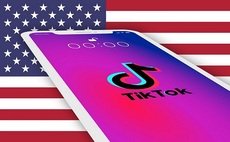Questions over Autonomy's accounts dismissed by HP as 'negative tactics' by Oracle
New documents released by HP indicate that its management were aware of Autonomy's accounting practices before the acquisition, but that the then CEO Leo Apotheker had dismissed questions over some...
To continue reading this article...
Join Computing
- Unlimited access to real-time news, analysis and opinion from the technology industry
- Receive important and breaking news in our daily newsletter
- Be the first to hear about our events and awards programmes
- Join live member only interviews with IT leaders at the ‘IT Lounge’; your chance to ask your burning tech questions and have them answered
- Access to the Computing Delta hub providing market intelligence and research
- Receive our members-only newsletter with exclusive opinion pieces from senior IT Leaders





















